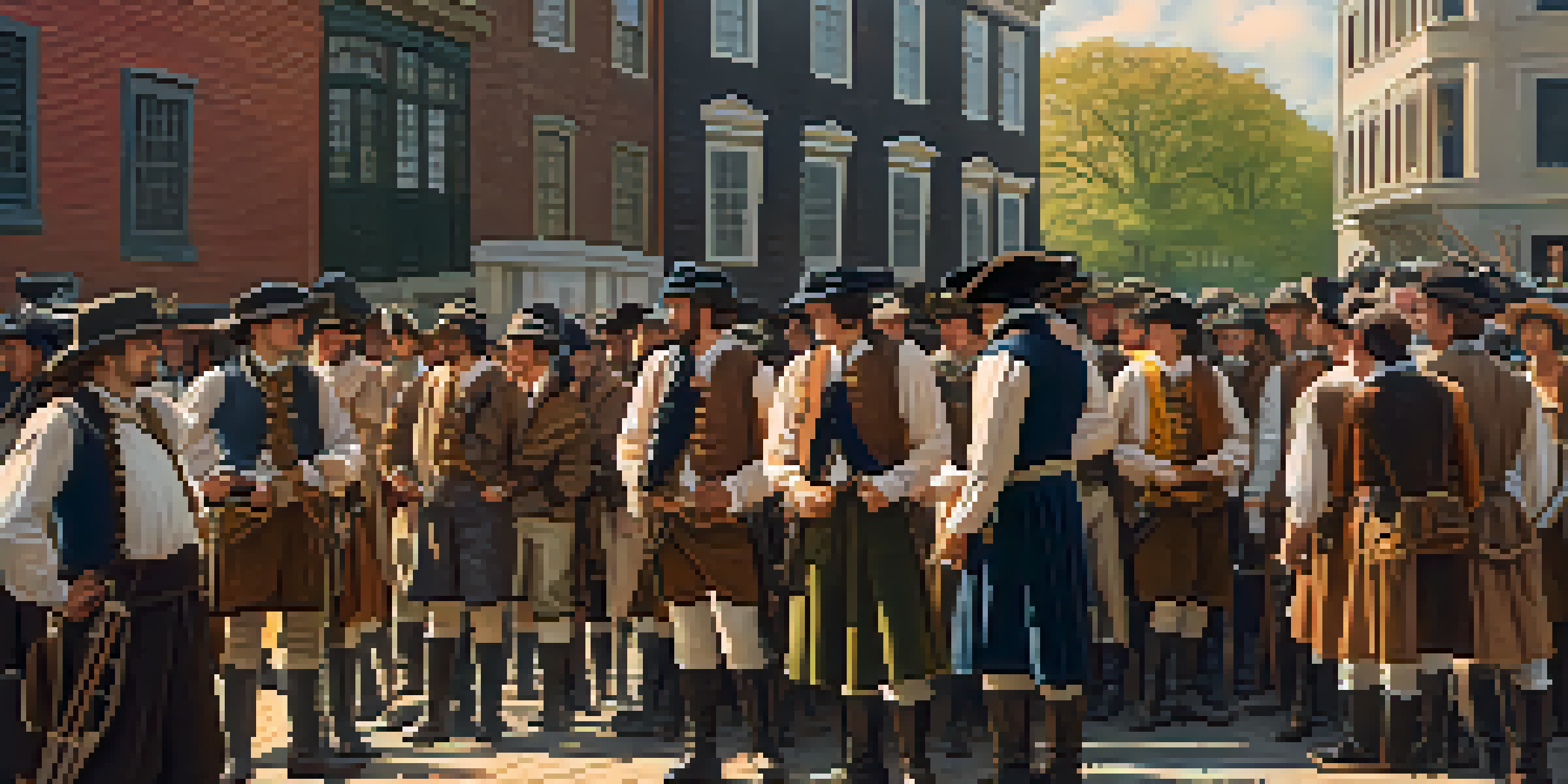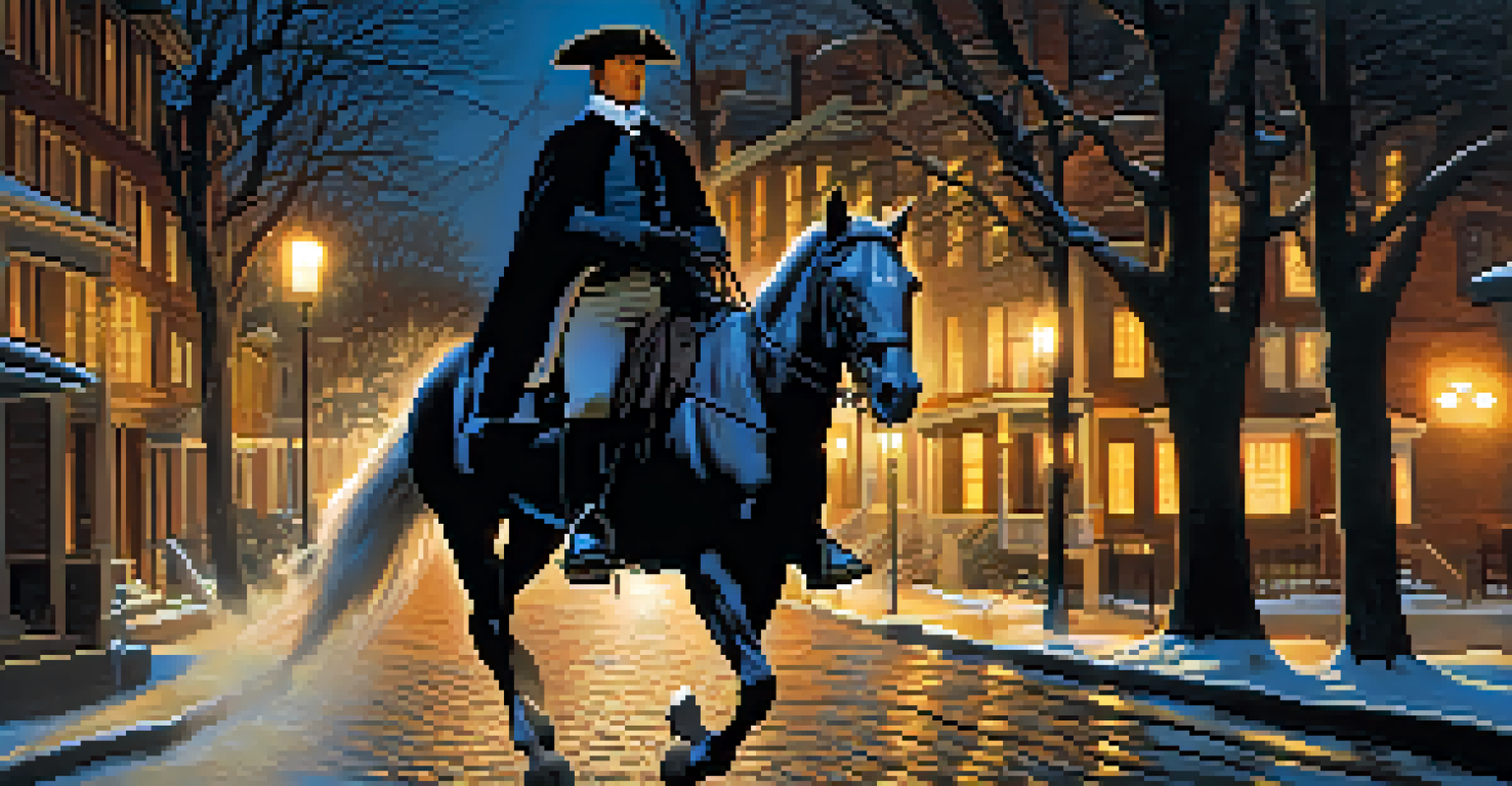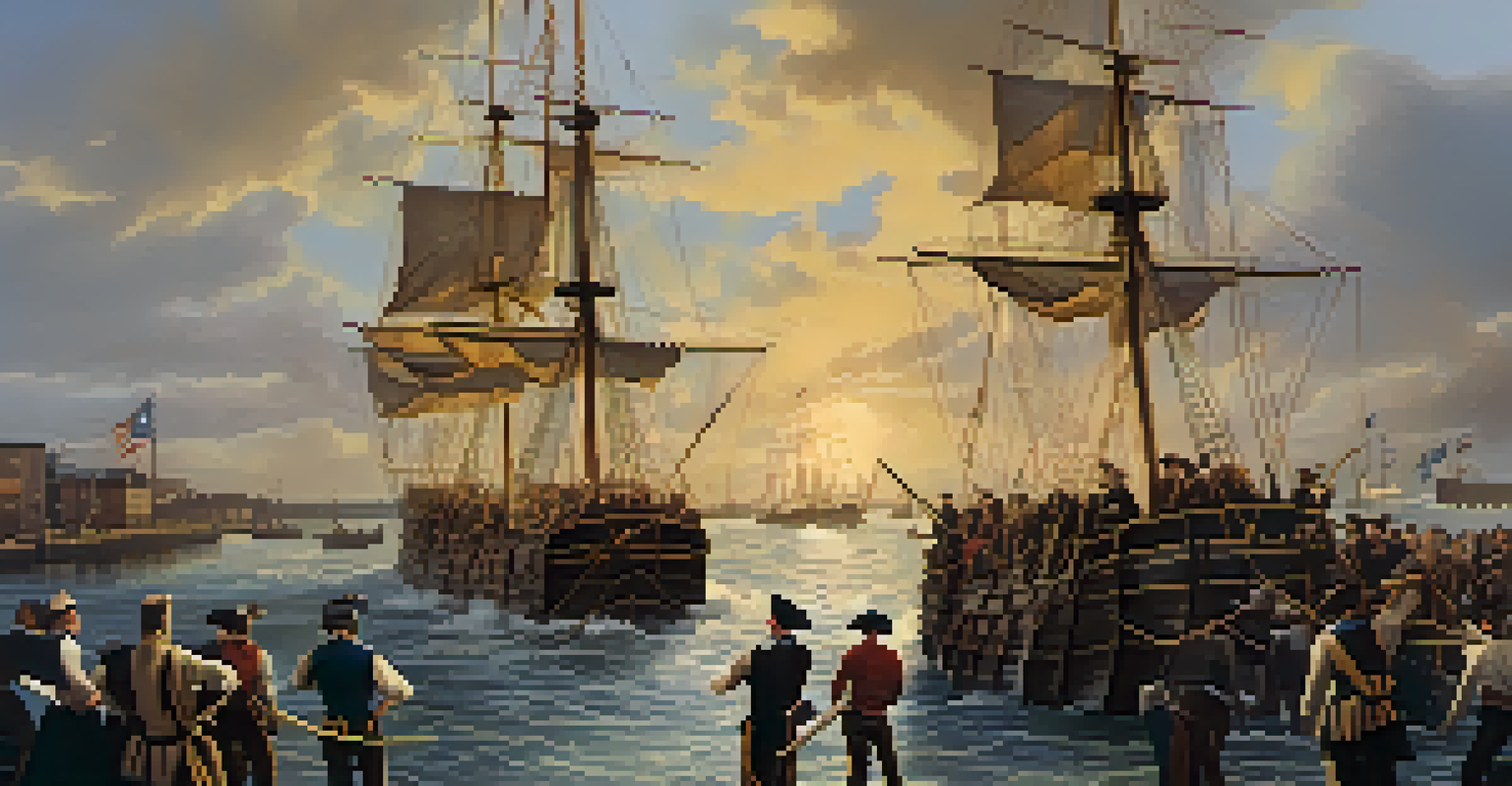Boston and Its Revolutionary War Heroes: A Tribute

The Birthplace of American Independence: Boston's Role
Boston is often called the cradle of the American Revolution. It was here that the seeds of independence were sown, fueled by a growing sense of injustice against British rule. From the Boston Tea Party to the Boston Massacre, the city was a hotbed of revolutionary fervor.
The Boston Tea Party was the first act of defiance against British rule, igniting the flame of revolution in the hearts of the American people.
The events that unfolded in Boston captured the attention of the entire colonies, galvanizing support for the cause of independence. These pivotal moments made it clear that the fight for freedom was underway, and Boston became a symbol of resistance against tyranny.
Today, when you walk the streets of Boston, you're treading on the same ground where brave men and women stood up for their rights. This city is not just a historical site; it's a living testament to the ideals that shaped a nation.
Samuel Adams: The Firebrand of the Revolution
One of Boston's most prominent figures during the Revolutionary War was Samuel Adams. Often considered the 'Father of the American Revolution,' Adams was a passionate advocate for colonial rights. His fiery speeches and writings inspired many to rise against British oppression.

Adams played a crucial role in organizing resistance, including the Boston Tea Party, which protested against the Tea Act. His ability to rally the people around a common cause was unmatched, making him a pivotal figure in Boston's revolutionary narrative.
Boston: Cradle of Independence
Boston was a pivotal location for revolutionary events that sparked the fight for American independence.
Even today, Adams' legacy lives on as a reminder of the power of grassroots activism. His commitment to liberty and justice laid the groundwork for a new nation, proving that one person's voice can ignite a movement.
Paul Revere: The Midnight Rider
Paul Revere is best known for his midnight ride to alert the American militia of the approaching British forces. His famous ride on April 18, 1775, became a symbol of bravery and commitment to the cause of independence. He didn’t just ride for himself; he rode for his fellow patriots.
Courage is not the absence of fear, but the triumph over it.
Revere’s actions not only spread the alarm but also united the colonies in their fight for freedom. His iconic call to arms is a testament to the importance of communication and preparedness in the struggle against tyranny.
Today, his story is celebrated in poems and retellings, reminding us that courage can take many forms. Revere's legacy lives on as a symbol of the urgency and determination that characterized the Revolutionary War.
John Hancock: The Bold Signer
John Hancock is often remembered for his bold signature on the Declaration of Independence. As President of the Second Continental Congress, his name became synonymous with defiance against British rule. Hancock's flamboyant style and charisma made him a beloved figure among his peers and the public.
Beyond his signature, Hancock was a significant financial backer of the revolution, risking his fortune for the cause. His leadership and commitment to independence inspired many to join the fight, demonstrating that sacrifice was essential for freedom.
Bravery of Revolutionary Heroes
Figures like Samuel Adams, Paul Revere, and John Hancock exemplified courage and leadership in the struggle for freedom.
Today, Hancock's legacy is not just in his signature but in the spirit of bravery and leadership he exhibited. His contributions remind us that the fight for liberty requires both courage and unity.
The Role of Women: Unsung Heroes of Boston
While many revolutionary heroes are well-known men, women played a crucial role in Boston's fight for independence. Figures like Abigail Adams and Mercy Otis Warren organized meetings, penned influential writings, and supported the war effort in various capacities. Their contributions were vital yet often overlooked in the historical narrative.
Women in Boston managed households, provided supplies for soldiers, and even participated in protests against British goods. Their resilience and resourcefulness were instrumental in sustaining the revolutionary spirit during tough times.
Recognizing the role of women in the Revolution is essential for understanding the full scope of the struggle for independence. Their courage and determination paved the way for future generations, proving that heroes can be found in every corner of society.
The Boston Massacre: A Turning Point
The Boston Massacre on March 5, 1770, was a critical turning point in the relationship between the colonies and Britain. This tragic event, where British soldiers shot and killed five colonists, ignited outrage and fueled the desire for independence. It became a rallying point for those advocating for freedom.
In the wake of the massacre, leaders like Samuel Adams used the incident to galvanize public sentiment against British rule. The event was immortalized in propaganda that portrayed the soldiers as oppressors and the victims as martyrs for the cause.
Women’s Vital Role in the Revolution
Women in Boston played crucial yet often overlooked roles in supporting the war effort and advocating for independence.
The Boston Massacre serves as a reminder of the sacrifices made during the fight for freedom and the power of public perception in shaping history. It highlights how a single event can shift the tide of a movement and inspire collective action.
The Legacy of Boston's Heroes Today
Boston's revolutionary heroes continue to inspire generations, reminding us of the values of courage, unity, and resilience. Their stories are etched into the fabric of American history and serve as a beacon for those who fight for justice today. From schools to public monuments, their legacies are celebrated throughout the city.
The lessons learned from their sacrifices are just as relevant today as they were over two centuries ago. In a world still grappling with issues of freedom and rights, their examples encourage us to stand up for what we believe in and to support one another in the pursuit of justice.

As we reflect on Boston's role in the Revolutionary War, we honor not just the individuals but the collective spirit that brought about change. Their legacy is a continuous call to action for all who seek a better world.